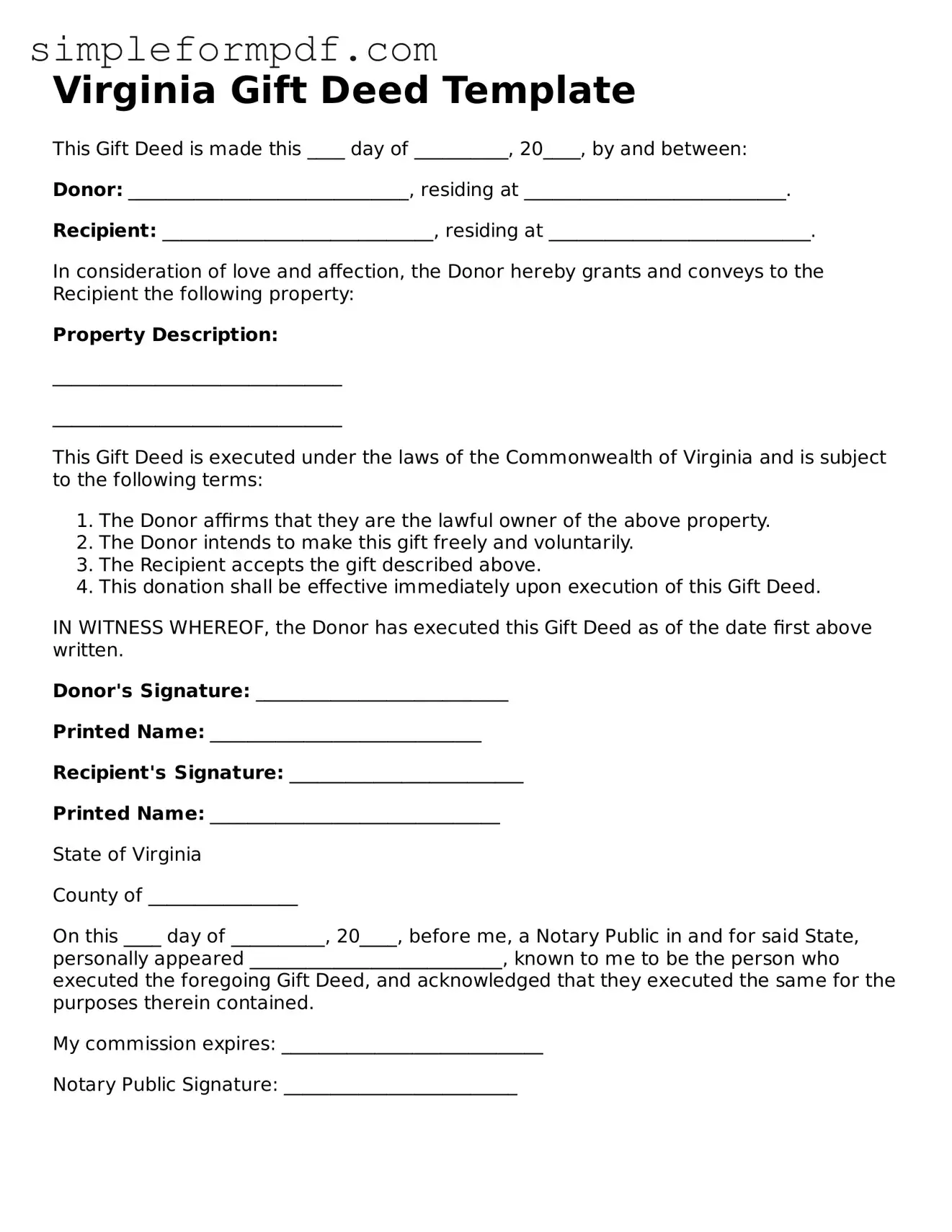Free Gift Deed Form for the State of Virginia
A Virginia Gift Deed form is a legal document used to transfer property from one person to another without any exchange of money. This form ensures that the gift is properly documented and can help avoid disputes in the future. If you're ready to make a generous gesture, fill out the form by clicking the button below.
Launch Editor

Free Gift Deed Form for the State of Virginia
Launch Editor
Need instant form completion?
Finish Gift Deed online in just a few minutes.
Launch Editor
or
Download PDF
